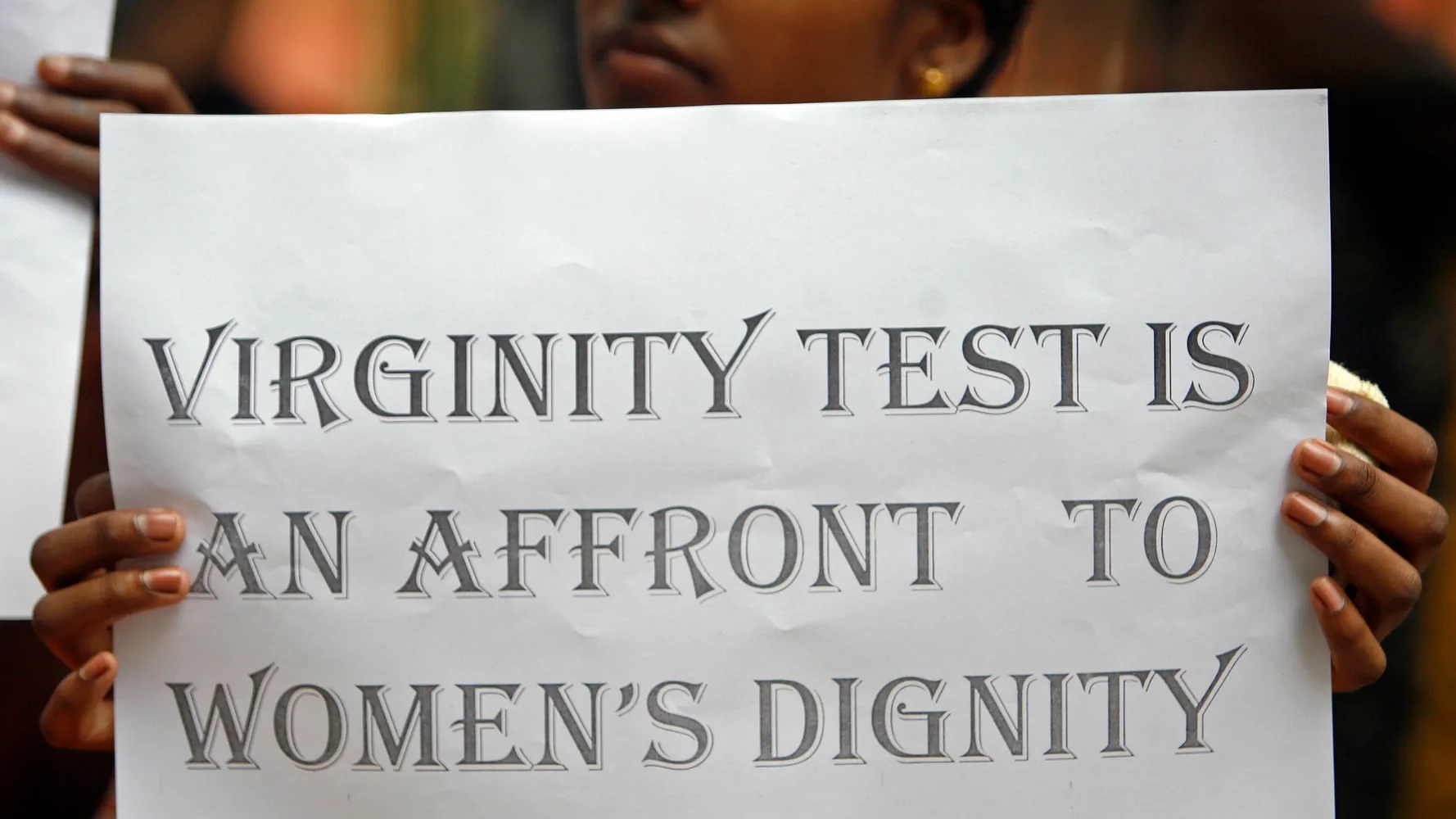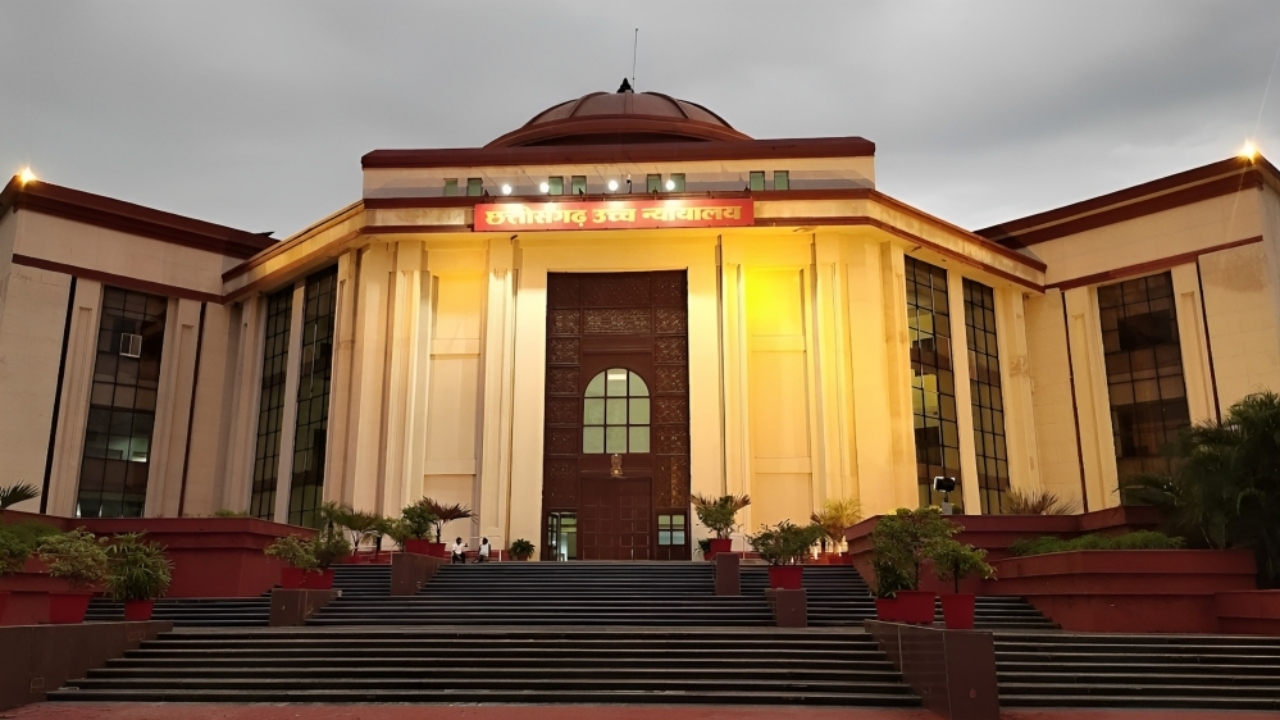In a landmark judgment, the Chhattisgarh High Court delivered a resounding message about women’s rights, dignity, and the inviolable nature of personal liberty. The court ruled that no woman can be forced to undergo a virginity test, emphasizing that such an act would violate her fundamental rights enshrined in Article 21 of the Indian Constitution. The ruling, which was passed on January 9, 2025, and made public recently, is a monumental victory in the fight for women’s dignity, reinforcing the core values of justice, fairness, and respect for personal autonomy.

Background of the Case
This groundbreaking decision arose from a criminal petition filed by a man who demanded his wife undergo a virginity test, alleging that she was in an illicit relationship with another man and that their marriage had never been consummated. The wife, on the other hand, accused her husband of impotence and claimed that he had refused to cohabit with her. In response to her request for maintenance, the husband sought a virginity test to prove his allegations.
On October 15, 2024, a family court in Raigarh rejected the husband's request for the test, leading him to challenge the decision in the High Court. The High Court, under the leadership of Justice Arvind Kumar Verma, however, upheld the family court's decision, rejecting the demand for the virginity test as unconstitutional and violating the woman’s fundamental rights.
Details of the Case
The couple in question married on April 30, 2023, as per Hindu rites, and initially lived together at the husband’s family residence in Korba district. However, the relationship soon became strained, with the wife claiming that her husband was impotent and unwilling to consummate their marriage. The wife filed a petition on July 2, 2024, before a family court in Raigarh, seeking ₹20,000 as interim relief under Section 144 of the Bharatiya Nagrik Suraksha Sanhita (BNSS).
In response, the husband demanded that his wife undergo a virginity test, alleging that she was involved in an illicit relationship with her brother-in-law, and that their marriage had not been consummated. The family court rejected this request on October 15, 2024. Unhappy with this decision, the husband then approached the Chhattisgarh High Court, which ruled against his request.

The Court’s Observations: Dignity Above All
The Chhattisgarh High Court made several key observations that underline the importance of safeguarding women’s rights:
-
Article 21 as the Core of Fundamental Rights: The court reiterated that Article 21 is the "heart of fundamental rights," which guarantees not only the right to life and personal liberty but also the fundamental right to dignity. It further stated that no woman should be subjected to a virginity test as it undermines this core right.
-
Virginity Tests Violate Natural Justice: Forcing a woman to undergo a virginity test goes against natural justice. It is a practice rooted in patriarchal views that seek to control and shame women based on their sexuality. The court’s ruling firmly rejected such views, emphasizing that a woman’s dignity must be protected at all costs.
-
Right to Personal Liberty is Non-Derogable: The judgment stressed that the right to personal liberty enshrined in Article 21 is absolute and cannot be compromised under any conditions, including the dispute at hand. The court noted that the husband could not use the virginity test as a way to fill gaps in his evidence, pointing out that it was not a legitimate method to prove or disprove his allegations.
Court's Ruling and Suggestions
The High Court's decision was clear: no woman should be forced to undergo a virginity test. Justice Verma suggested that the petitioner could undergo medical tests himself to refute the allegations of impotency, or alternatively, produce other evidence to support his claims. The court made it evident that forcing the wife to undergo such a test to fill gaps in the husband’s evidence was not permissible.
The court also dismissed the husband's argument that a virginity test would help substantiate his case. Instead, it reiterated that the issues at hand, such as the allegations of impotence and infidelity, should be resolved through evidence presented in the family court.
Importance of the Ruling for Women's Rights
This ruling is a significant step forward in protecting women’s rights in India, especially concerning their bodily autonomy and dignity. By rejecting the request for a virginity test, the Chhattisgarh High Court has set a precedent that could influence similar cases in the future. The decision aligns with a growing understanding that women’s rights cannot be compromised in the name of tradition, family honor, or societal norms.
The Broader Implications of the Ruling
- Upholding Fundamental Rights
The Chhattisgarh High Court's decision underscores the importance of protecting fundamental rights, particularly for women, who have historically been vulnerable to various forms of discrimination and exploitation. The right to dignity, personal liberty, and bodily autonomy cannot be violated under any circumstances, as these rights form the bedrock of India's constitutional framework.
- Protecting Women from Gender-Based Discrimination
Virginity tests, often seen as tools of control over women’s bodies, have no scientific basis and are widely criticized for perpetuating gender-based discrimination. This ruling sends a strong message that such invasive practices, which violate personal privacy and dignity, will not be tolerated by the legal system.
The Chhattisgarh High Court's ruling is a crucial milestone in the fight for women's rights and dignity. It serves as a reminder that no woman can be forced to undergo a virginity test or any other form of medical examination that violates her privacy or dignity. As the legal landscape evolves, it is essential that such rulings continue to protect women’s fundamental rights and ensure that justice is served without infringing upon their bodily autonomy.
With inputs from agencies
Image Source: Multiple agencies
© Copyright 2025. All Rights Reserved Powered by Vygr Media.





















